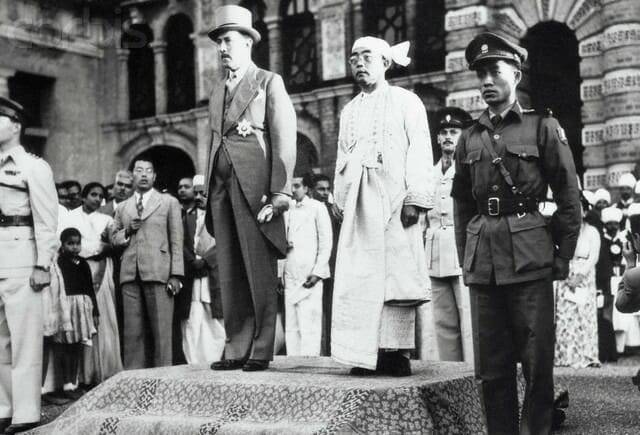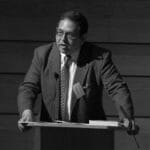I have spoken (and written) much about the Rohingya and the historicity of their ethnic self-referent. It is undeniable that the Rohingya were present in Rakhine before the colonial period and indeed it is arguably the case that it is the Bamar-language Buddhist culture that is the historical latecomer to the region known today as Rakhine, or once as Arakan. The point is not that peering through the mists of time into poorly-documented periods for little bits of evidence has anything to say about who belongs or does not belong to a geographic area or to whom a geographic area should peculiarly belong today. This point is only made to challenge the terms of the 1982 Myanmar Citizenship Laws to show that even more than they are ludicrous and offensive, they are groundless in basis of fact. Even more importantly, the more we dwell on attempting to disprove the thesis of the indigeneity of Bamar Buddhists in Rakhine and the indigeneity of those Muslim Rakhine-tha who are also known as the Rohingya, the more we become inextricably wrapped up in this single issue, unable to deviate from the boundaries demarcated by the arguments made by racists and religious ethno-communalists. We are never able to move beyond the debate over who was in the region before 1823 and as a result we never look beyond the walls of the 1982 laws and related issues, to those that are actually more important for the wellbeing of all involved.
The record of what happened is too well known to repeat here.1 One particular aspect that warrants more attention is that the inclusive precolonial approach to draw culturally, religiously, and ethnically heterogeneous populations into Myanmar as contributors to the wellbeing of the court, the kingdom, the people, and the economy was rejected in favour of exclusive colonial-era policies that sought to separate, or “island” a Buddhist, Bamar defined British Burma away from its broader context.2 We might find in the slaughter and the rape of 2017 the end result of the work of British warrior-scholars like Arthur Phayre and Henry Burney and the judges like Maurice Collis, and the generations of religious studies scholars, linguists, and others who brought British ideas about how to separate people and divide them and essentialise them to make them easier for the state to rule cheaply, by using all of them against each other to hold them in check. The military which ran the state from 1962 built its control on British-era security laws, devised ethnic hierarchies on the basis of British colonial censuses, and saw themselves as had the British of the colonial period as those who were to rule but were themselves above the law.

“Burma’s independence ceremony during which the Union of Burma was officially birthed and the Sun (of the British Raj) set in the colony after 120 years”, The last British Governor Hubert Rance and President Sao Shwe Thaike performed the ritual act of power transfer, Government House, Rangoon, 4 January 1948.” Wikipedia Commons
The usual counter to complaints about control mechanisms introduced by colonial rule and their bloody consequences in the independence period whether in Africa, South Asia, or Southeast Asia is the same as that directed at efforts to decolonise knowledge today—that there are a lot of uniquely European concepts that have done a lot of good for the world, particularly from the Enlightenment. Similarly, many of those who seek to defend abusive regimes in the Global South, including gatekeeping academics, wrap themselves in the shawl of anti-Westernism, suggesting that the West has no right to impose the latter values on the rest of the world, that these values are European and not universal, and that expecting things like tolerance, inclusivity, and Democracy from non-western societies and states is neo-colonialism. Both views are wrong. As recent work has shown, the Enlightenment was kicked off by the 1703 publication of conversations between a French explorer and a Wendat intellectual named Kandiaronk who questioned the foundations of French state and society on the basis of the freedoms of Native American Life. The book and other published critiques of Europe by native American thinkers was then read by Jean-Jacques Rousseau and other French philosophers who then directed an intellectual storm against the inequalities of their society and time.3 We know from other sources that Europe was pumping in huge amounts of information on the non-western societies it encountered in North America, Africa, and Asia, where universalism, inclusivity, and rule by popular consensus were more common than anything that existed anywhere in Europe. It was racist historians of the colonial era who later shaped a historical narrative that made Europe the birthplace of “higher values.” Ironically, Europe would level the states whose societies had given birth to these ideas and in its wake leave behind independent states dependent upon the control mechanisms that were indeed uniquely European.
Decolonising the academy (and the knowledge it shapes) and promoting what might be called humanitarian ideals are kindred efforts. Organizations such as the International Committee of the Red Cross and some religious studies scholars have recently made significant efforts to unravel the Gordian knot that is the bond between colonial legacies and authoritarianism in places such as Southeast Asia. They have shown that Buddhism,4 like the precolonial religious traditions of Islam, Sikhism, Judaism, Christianity, and other religions should be sources of peace, tolerance, and inclusivity. Despite this, all have been abused in different period as instruments of war (all of them and in the case of Myanmar, most recently this has occurred with Buddhism).
A major problem standing in the way of progress of what should be a joint front is that academics have clung to the myth that academics are observers, not participants, and that they should stand beyond politics. Unfortunately, in the Area Studies of the American and the British Academies, the discipline IS political. Our disciplines have emerged from the colonial period as tools of empire and were preserved after the retreat of Europe because they had utility in the Cold War. Regionalism has strategic value and can quickly change in response to new strategic interests, such as we see today in Japan, Australia, and the United States with the shift from Asia-Pacific to Indo-Pacific as a geographic framework. These Area Studies components of our disciplines reinforce in the collective minds of thousands of our students (the future diplomats, military thinkers, journalists, business leaders, lawyers, INGO workers, and the like) essentialist views of the states, societies, cultures, religions, and peoples we study. They also raise questions about the standard academic denial of being political despite serving the strategic interests of both countries such as the United Kingdom and the United States (or Australia), on the one hand, and countries such as Myanmar on the other. Academics ensure through collaboration or silence that when we imagine “Myanmar” we think of Bamar-speaking Theravada Buddhists or simply, Bamar-Buddhist normativity, a normativity many academics hold sacred, even when it leads to genocide.
 FORSEA Board Member Michael Charney is a full professor at SOAS, the University of London, in the Centre for International Studies and Diplomacy (School of Interdisciplinary Studies) and the School of History, Religions, and Philosophies, where he teaches global security, strategic studies, and Asian military history. He received his PhD from the University of Michigan in 1999 on the subject of the history of the emergence of religious communalism in Rakhine and has published a number of books on military history in Southeast Asia and the political and intellectual history of Myanmar. He was a postdoctoral research fellow at the Centre for Advanced Studies at the (National University of Singapore) where he researched religion and migration, was a project professor at the Institute for Advanced Studies of Asia at the University of Tokyo, and has spent most of the last two decades at SOAS, where he was elected to the Board of Trustees in 2016. He is a regular commentator in the media on events in Myanmar.
FORSEA Board Member Michael Charney is a full professor at SOAS, the University of London, in the Centre for International Studies and Diplomacy (School of Interdisciplinary Studies) and the School of History, Religions, and Philosophies, where he teaches global security, strategic studies, and Asian military history. He received his PhD from the University of Michigan in 1999 on the subject of the history of the emergence of religious communalism in Rakhine and has published a number of books on military history in Southeast Asia and the political and intellectual history of Myanmar. He was a postdoctoral research fellow at the Centre for Advanced Studies at the (National University of Singapore) where he researched religion and migration, was a project professor at the Institute for Advanced Studies of Asia at the University of Tokyo, and has spent most of the last two decades at SOAS, where he was elected to the Board of Trustees in 2016. He is a regular commentator in the media on events in Myanmar.
Banner image: British governor Hubert Elvin Rance and Sao Shwe Thaik at the flag-raising ceremony on 4 January 1948 (Independence Day of Burma). Wikipedia Commons
- Fighting, regardless of cause, between resident communities of Muslim and Buddhists broke out in Rakhine a decade ago. Both communities had suffered from time to time at the hands of the Myanmar military for different reasons. The Bamar Buddhist military had developed a very harsh manner of dealing with ethnic minorities over the course of a long civil war treated non-Bamar ethnic groups in various ethnic areas in the civil war zones and did the same for the Rohingya while they “kept the peace” in Rakhine. When Thein Sein released very charismatic and anti-Muslim monks from prison with the transition to Democracy anti-Muslim anxiety was stirred up, the Memes flowing through social media were of terrorists dressed in Arabic dress not Rohingya whose dress was the same as others in Rakhine. The Rohingya – and note most Bamars had never met or seen one – were made the symbol of an impending international Muslim terrorist invasion that good Buddhist had to pick up arms to repel. The military in the midst of all this turned on the Rohingya civil population in a frenzy of murder, rape, and pillage forcing 800,000 into Bangladesh. They then built a wall to keep the Rohingya from returning to their homeland.
- Island here refers to the colonial process of isolating a country from its heterogenous connectivities making it easier to rule, a process Sujit Sivasundaram has called “islanding” in Islanded: Britain, Sri Lanka, and the Bounds of an Indian Ocean Colony (Chicago: Chicago University Press, 2013).
- David Graeber and David Wengrow, The Dawn of Everything: A New History of Humanity (New York: Penguin, 2021).
- See Andrew Bartles-Smith, Kate Crosby, Peter Harvey, P. D. Premasiri, Asanga Tilakaratne, Daniel Ratheiser, Mahinda Deegalle, Noel Maurer Trew, Stefania Travagnin & Elizabeth Harris (2021) Reducing Suffering During Conflict: The Interface Between Buddhism And International Humanitarian Law, Contemporary Buddhism, DOI: 10.1080/14639947.2021.1976016

